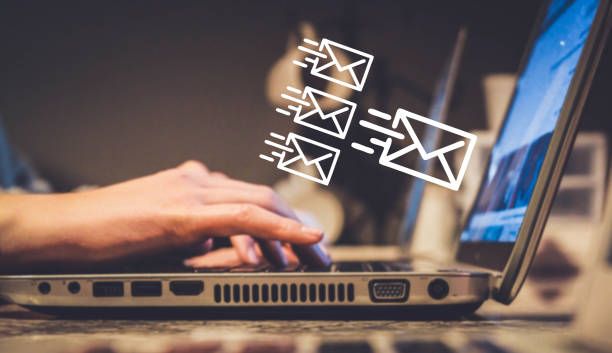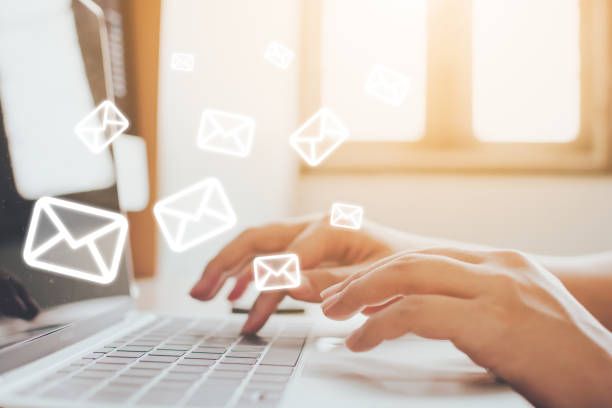In today's digital age, the phrase "check email" has become a ubiquitous part of our daily routine. However, do we truly understand the profound meaning and implications behind these seemingly simple words? As an expert in email communication, I'm here to delve deeper into the true essence of "check email" and provide valuable insights on how to maximize its potential. In this comprehensive article, we will explore different perspectives, tools, and techniques to help you harness the power of checking email for enhanced productivity, communication, and personal growth.
Unveiling the Meaning of "Check Email"

At its core, "check email" refers to the action of reviewing and responding to electronic messages sent to your designated email address. It involves accessing your inbox through email clients or web-based platforms to stay informed, connected, and up to date with important communications. However, the meaning goes beyond mere information retrieval. "Check email" is a gateway to opportunities, connections, and effective communication.

The Importance of Checking Email:
- Communication and Connectivity: Email serves as a vital medium for communication in both personal and professional realms. By checking our emails regularly, we ensure that we are accessible and responsive to important messages, fostering stronger connections and collaborations.
- Information Sharing and Updates: Email provides a platform for exchanging information, sharing updates, and disseminating essential news. By checking email regularly, we stay informed about the latest developments, both within our immediate circles and the broader world.
- Task Management and Productivity: Effective email management enables us to stay organized, prioritize tasks, and maximize productivity. By checking email strategically, we can promptly address urgent matters, delegate responsibilities, and streamline our workflow.

Maximizing the Potential of Email Checking

- Establishing a Routine: Set a specific time or designated intervals for checking email to avoid constant interruptions throughout the day. Create a balance that ensures you stay responsive while also allowing focused time for other important tasks.
- Filtering and Prioritization: Utilize email filters and labels to categorize incoming messages based on priority, sender, or subject. This enables efficient sorting and ensures that you attend to the most important emails promptly.
- Clear and Concise Communication: When composing emails, strive for clarity and brevity. Craft concise subject lines that accurately reflect the email's content, and use a clear and professional tone in your messages. This fosters effective communication and increases the likelihood of prompt responses.
- Security and Privacy: Protecting your email account from unauthorized access is paramount. Implement strong passwords, enable two-factor authentication, and be cautious of suspicious emails or phishing attempts. Regularly update your security settings and stay vigilant to safeguard sensitive information.
Commonly Asked Questions:
Q1: How often should I check my email?
A1: The frequency of checking email depends on your personal and professional needs. Aim for a balance that allows you to stay responsive without being overwhelmed by constant interruptions. Consider setting specific times during the day to focus on email management.
Q2: What if I receive an overwhelming amount of emails?
A2: If you find yourself overwhelmed by a high volume of emails, consider implementing email management techniques such as filtering, labeling, and setting up folders. Prioritize urgent or important messages and establish boundaries to prevent email from becoming a distraction.
Q3: How can I improve my email communication skills?
A3: To enhance your email communication skills, focus on writing clear and concise messages. Use appropriate subject lines, be mindful of your tone, and proofread before sending. Practice effective email etiquette and responsiveness to foster positive and efficient communication.
Q4: Are there any tools or extensions to assist with email checking?
A4: Yes, there are several tools and extensions available to enhance your email checking experience. These include email clients with advanced features, productivity extensions that streamline inbox management, and email tracking tools to monitor message delivery and recipient engagement.
Conclusion:
Checking email is more than a mere routine; it holds immense potential for effective communication, productivity, and personal growth. By understanding the true meaning behind "check email" and adopting strategies to optimize our email checking habits, we can harness its power and transform it into a valuable tool for success. Embrace the opportunities that email presents, stay connected, and unlock the full potential of this essential communication medium.

